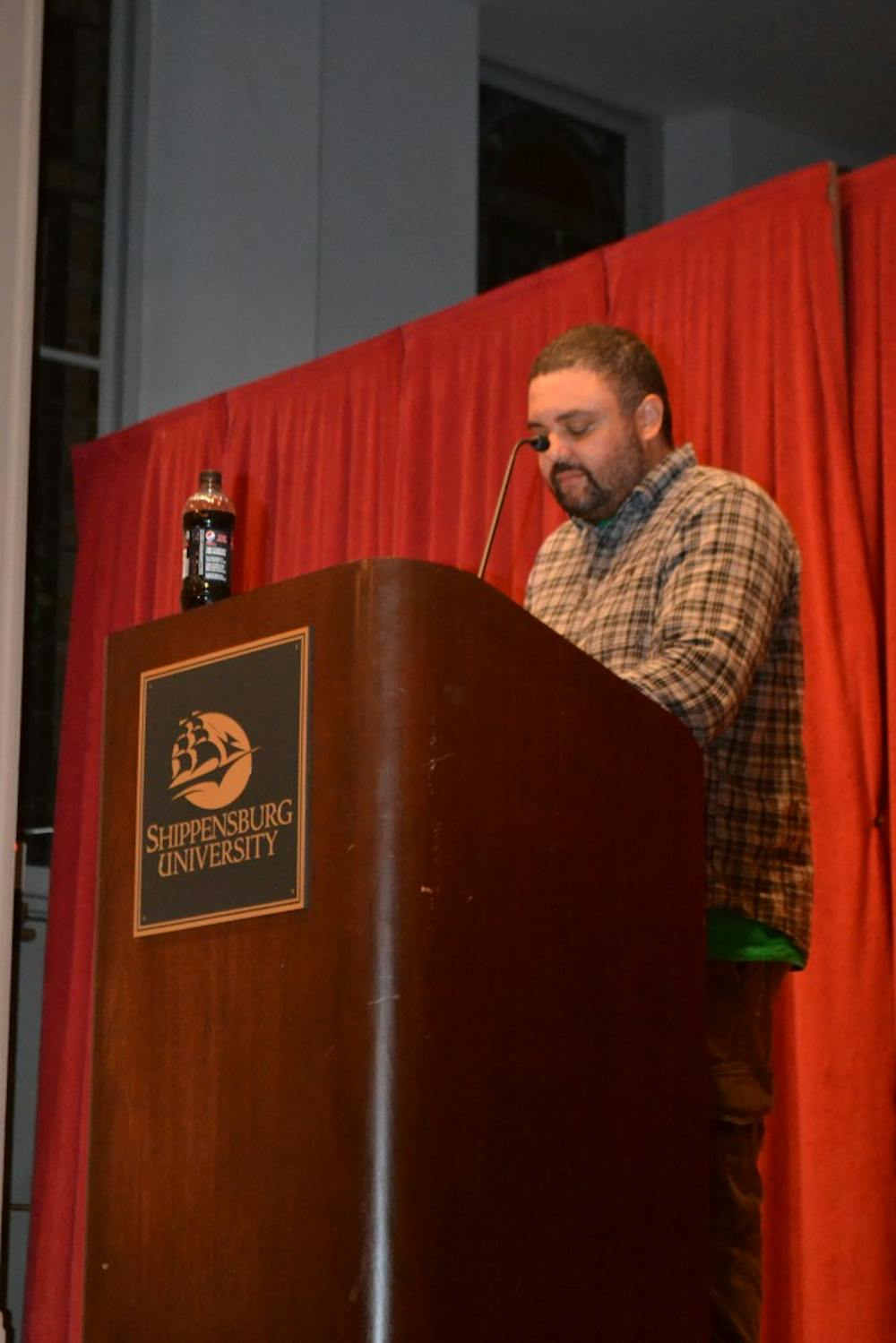“How did you begin writing poetry?” He paused.
“I never know where to start while telling these stories,” he said. “It usually ends when everyone leaves the room.”
The students laughed around him, many holding the poet’s first published book of poetry, “Mule,” in their hands.
Shane McCrae, an award-winning poet and author from Iowa, arrived at SU on Thursday to talk to students at three separate sessions. There was a talk on education and diversity, a general writing Q&A session and later on in the evening, a poetry reading of his published and some non-published poems.
McCrae was sponsored by the John Taggart Reading Series, the College of Arts and Sciences, the Department of English, the Office of Social Equity, the Multicultural Caucus and SU’s literary magazine, The Reflector.
During his Q&A session in Horton Hall, McCrae talked about his experience as a professional poet and answered many questions that students had.
In the beginning, McCrae used poetry as an outlet as he struggled with academics throughout school. It also helped him to express his feelings. His first poetry, he said, was written when he was 15. He claimed it was pretty dark and said it was mostly from his first poetic influence, Sylvia Plath.
Now, he looks back at that time as dark and full of angst and felt it was the beginning. He spent this time developing his love for poetry, which is something he feels most people are raised with a “healthy” distrust of, including himself.
“I couldn’t read poetry until after I got published,” he said, referring to a magazine that published one of his poems when he was 17. “I had a heavy disdain for poetry.”
But, he continued with it, he said, partially due to his academics being poor and the encouragement he received from his poetry.
There were several questions regarding his unique style, which includes the repetition of certain words or complete changes in attitude during the lines. McCrae said during the writing process, he feels the writer thinks their way through and goes back and forth, just like the process of thinking.
In terms of how he writes, he said he edits as soon as he writes lines, which is somewhat different from what other poets do. To him, if the first line is off, then those that follow will seem wrong as well.
He wants his poetry to be “uniquely” his and is sub-sequentially known for the visual quality of them, including double spacing and repetition. Also, he spoke of a “blurry clarity” quality that he feels are what his poetry goes for.
His first book “Mule” was based on personal experiences, including his last marriage that ended in divorce, his son’s diagnosis of autism, race and identity and religion.
Later on in the evening, after the Q&A, Zach Savich, associate professor of English, introduced sophomore Brittany Torrez-Alvarez, who had won a competition in her poetry class that required her to write a poem in McCrae style. Torrez-Alvarez, in turn, introduced McCrae to read his work to a packed house in Old Main Chapel.
He read several poems from “Mule,” including “The Cardinal Is the Marriage Bird,” “Are Roses Are,” and “In No Place.”
He also read from his upcoming book “Blood” which is about life before the Civil War. The first section is about Margaret Garner, made famous by Toni Morrison’s “Beloved,” and reportedly killed her daughter when forced to return back to her slave owner.
Poems he read included “Mercy” and “Children,” both written from Garner’s point of view about the act of “saving” her children from that life.
He also talked about the 1811 German Coast Uprising in “Blood,” where a reported group of 500 slaves rebelled.




The Slate welcomes thoughtful discussion on all of our stories, but please keep comments civil and on-topic. Read our full guidelines here.